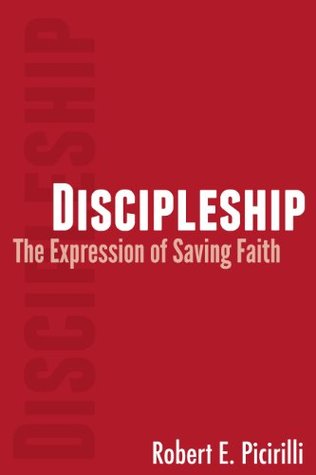Kindle Notes & Highlights
Read between
September 24, 2018 - November 20, 2019
We have so emphasized salvation by faith alone that we have based assurance of salvation on the mere profession of faith. Intentionally or not, we have led people to believe that once they have “trusted Jesus” there is no further danger to their souls.
Nevertheless, Paul is the one who most thoroughly defines what one must do to inherit eternal life, and his definition is the one that dominates Christian thinking on the subject.
I assume, in other words, that what I have to say here echoes the voice of all branches of “reformed” Christianity.
In short, the passage is clear: people who have faith in Christ have righteousness imputed to them.
In the book God keeps, there is a transaction entered: they are justified and credited with righteousness; no sin is charged to their account. This transaction is based solely on faith, it is not by works.
That this means faith in Christ (an objective genitive in Greek), rather than some mysterious faith that Jesus had or gives, seems to me to be beyond question.6
The transaction, then, involves not only justification but also the regenerating presence of the Holy Spirit and the
spiritual riches are ours by virtue of our union with Christ.
Although the word faith does not appear here, this “double imputation” is at the heart of the transaction model of salvation and must necessarily be accomplished by faith.
In summary, the transaction model views personal salvation primarily from the judicial perspective of justification, conceiving salvation as imputation of the righteousness of Christ or as a legal standing in the family of God.
In this model, personal salvation is conceived as a finished transaction, a judicial decision that is settled for good.
This leaves me in no doubt that, as far as Luke the historian was concerned in writing Acts, disciple was synonymous with Christian, thus putting Acts 11:26 into its proper perspective.
A disciple (mathētēs) is a follower or pupil. The noun is from a verb (manthanō) that means to learn or be instructed.
Disciples have renounced any Lordship except that of Christ, any primary claim to their lives except that of Jesus.
I find the dispensational framework, with its neat—to me, artificial—distinctions unacceptable.
What seems indisputable is that Jesus, following directly in the pattern established by John the Forerunner, proclaimed that repentance is essential to salvation.
Repentance and forgiveness go together as “response” and “effect.”35 One of the best biblical definitions is found in 1 Thessalonians 1:9: “You turned to God from idols to serve a living and true God.”
The faith that saves is inseparably linked to a repentance that brings about such a change that practical fruit evidencing it will be manifested in a person’s life.
The very least that can be said about these excerpts from Jesus’ teaching is that one cannot truthfully claim to be a disciple of Jesus—a Christian, as we have usually expressed it—if one’s way of life does not manifest the character Jesus described.
Jesus did indeed know about justification by faith; but He did not know of faith that is separated from repentance, of faith that does not heed the demands of discipleship, of faith that does not produce the fruitfulness of hearing and keeping the word of God.
The word disciple has already been examined: a disciple is one who has enrolled in the school of Jesus, one who follows and learns from Him.
What is a disciple, then? One who lays aside every other influence for giving direction to his life and pledges allegiance to Jesus, one who follows where Jesus leads, who enrolls in the school of Jesus and proceeds to learn from Him and put His teachings into practice.
To be a disciple means to repent and believe the gospel and so to enter the Kingdom of God.
There is no room for doubt that this verb often expresses the condition for receiving eternal life.
John’s goal is not simply initial faith but persevering faith, discipleship
faith necessarily involves obedience, a commitment to a way of life, the abandoning of self, a yielding up of oneself to be possessed by Jesus, the way one thinks, lives, and acts. This is, in other words, true discipleship.
can we understand the relationship between faith and acts of obedience in such a way they are two ways of viewing what is at root the same thing?
this Gospel also includes some pointers in the direction of understanding that faith necessarily expresses itself in actions.
Our works do nothing more than express our faith, our response in loving trust to the call of our Savior to follow Him.
Our works are essential expressions of faith.
A regenerate person is one who orders his life by the teachings of Jesus.


